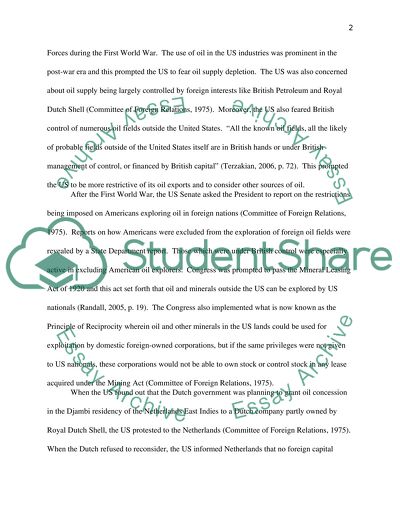Cite this document
(“US foreign policy ( chapter 3) Essay Example | Topics and Well Written Essays - 2250 words”, n.d.)
Retrieved from https://studentshare.org/miscellaneous/1575790-us-foreign-policy-chapter-3
Retrieved from https://studentshare.org/miscellaneous/1575790-us-foreign-policy-chapter-3
(US Foreign Policy ( Chapter 3) Essay Example | Topics and Well Written Essays - 2250 Words)
https://studentshare.org/miscellaneous/1575790-us-foreign-policy-chapter-3.
https://studentshare.org/miscellaneous/1575790-us-foreign-policy-chapter-3.
“US Foreign Policy ( Chapter 3) Essay Example | Topics and Well Written Essays - 2250 Words”, n.d. https://studentshare.org/miscellaneous/1575790-us-foreign-policy-chapter-3.


